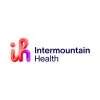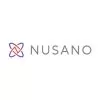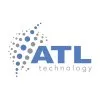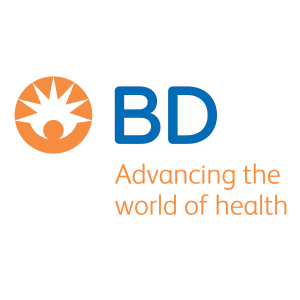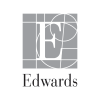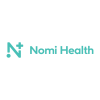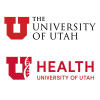
Request for Proposals – CARES Act Funding in Support of COVID-19 Treatments
June 9, 2020
August 21, 2020 Update
Thank you to everyone who submitted applications for the $2M of CARES Act funding appropriated by the Utah Legislature to support the response to COVID-19.
Applicants were awarded grants through a multi-step review process. At this point, all $2M in CARES Act funding appropriated by the legislature has been distributed. Thank you, again, for your interest in the initiative and your efforts to combat the COVID-19 pandemic.
The following applicants were awarded grants through a multi-step review process:
- University of Utah PI Dr. Selzman: $229,440. A Phase I/II Randomized Double-Blinded Placebo-Controlled Clinical Trial to Determine Safety and Feasibility of Using Acellular Sterile Filtered Amniotic Fluid as a Treatment for COVID-19 Patients.
- Utah State University PI Dr. Takemoto: $72,328. New Immunomodulatory Therapeutic Mesobiliverdin Against Covid-19 Acute Respiratory Distress Syndrome.
- PEEL Therapeutics: $1,000,000. Advancing Neutrophil Targeting Peptides (NTPs) as a New Treatment for COVID-19.
- University of Utah PI Dr. Davis: $499,202. Broad Spectrum Coronavirus Inhibitors.
- Carterra: $104,500. Accelerating Antibody Therapies for COVID-19.
July 20, 2020 Update:
The Utah State Legislature has yet to announce the recipients of the grants. BioUtah will publish the list of those companies awarded a grant as soon as we receive updated information from the legislature.
Previously Published Information:
June 9, 2020
The Utah Legislature has set aside $2M of CARES Act funding to support efforts focused on partnerships with companies developing treatments for COVID-19 antiviral development, and has charged the University of Utah with evaluating and prioritizing Utah projects for funding. Public and private Utah entities developing therapeutics or diagnostics with potential to improve treatment of COVID-19 are invited to apply. The deadline for applications is 11:59 p.m. MDT on June 22, 2020.
Scope of Projects Considered. Funding priority will be given to entities whose work offers the potential to aid directly in the treatment of patients with COVID-19. Development of new therapeutic agents and repurposing of existing agents will be considered, as will all therapeutic modalities, including small molecules, biologics, and nucleic acid-based technologies. Diagnostic technologies that directly enhance treatment of COVID-19 will also be considered. Projects focused on studying the fundamental mechanisms of COVID-19 or public health aspects of the disease are outside the scope of this opportunity.
Eligibility. Academic research groups and companies registered or with a principle place of business in Utah may apply for this funding opportunity. Collaborative partnerships that bring together academic groups and commercial partners are especially encouraged to apply.
Budget. A budget request must accompany each proposal. The budget request should be no more than one page and should indicate the total requested amount, a rough breakdown of how it will be used (salaries, supplies, services, etc.), and the rough timeline for expenditure. Funds must be spent within 2 years of granting. For partnerships between multiple entities, the amount requested for each entity should be indicated. There is no strict budget limit, but the total funding set aside for this opportunity is $2M. The University may allocate the entire $2M for a single project or award funding for more than one project. The University may also elect to fund part, but not all, of a requested project budget, subject to a recipient’s acceptance of the lesser amount. Budgets that enable funding of multiple projects will be viewed favorably. Indirect costs will not be charged for funds provided by this mechanism.
Application. Applications should be submitted as a single PDF composed of the following elements:
- Cover page listing project title, along with names and contact information for key personnel.
- Background information. Provide relevant background information on the applying entity and the technology being developed. This information should make clear why the new development is needed, how it will help with treatment of COVID-19, anticipated challenges, and why the approach is likely to be successful. Limit 2 pages.
- Proposed development activities. Describe the work that will be supported by this opportunity. Limit 1 page.
- Budget. See Budget section above. Limit 1 page.
- All pages of the application should be Arial font, not less than 11-pt, with margins not less than 0.5 in.
Deadline. Applications must be submitted by email to info@tvc.utah.edu no later than 11:59 p.m. MDT on June 22, 2020.
Additional Information. Questions regarding this grant opportunity may be submitted by email to the following address: info@tvc.utah.edu, referencing this RFP. The University will not necessarily respond to each question presented; however, for each question answered, the University will post a summary of the question, without reference to the party having submitted the question, along with the answer. All interested parties are encouraged to periodically refer back to this link for additional information made available on this site prior to the grant application deadline.
Collaborative partnerships that bring together academic groups and commercial partners are especially encouraged to apply.
###
Q&A: Request for Proposals – CARES Act Funding in Support of COVID-19 Treatments:
Frequently Asked Questions
The application period is now closed, but we will continue to update this section with new questions and answers.
The Utah Legislature has set aside $2M of CARES Act funding to support efforts focused on partnerships with companies developing treatments for COVID-19 antiviral development.
Funding priority will be given to entities whose work offers the potential to aid directly in the treatment of patients with COVID-19. Development of new therapeutic agents and repurposing of existing agents will be considered, as will all therapeutic modalities, including small molecules, biologics, and nucleic acid-based technologies. Diagnostic technologies that directly enhance treatment of COVID-19 will also be considered.
Projects focused on studying the fundamental mechanisms of COVID-19 or public health aspects of the disease are outside the scope of this opportunity.
Funds must be spent within two years of award.
The Utah Legislature charged the University of Utah with evaluating and prioritizing Utah projects for funding.
Public and private Utah entities developing therapeutics or diagnostics with potential to improve treatment of COVID-19 are invited to apply.
Academic research groups and companies registered or with a principle place of business in Utah may apply for this funding opportunity.
Collaborative partnerships that bring together academic groups and commercial partners are especially encouraged to apply.
The deadline for applications is 11:59 p.m. MDT on June 22, 2020.
No. The CARES Act and subsequent Utah Legislative appropriation of these funds for
purposes of this grant opportunity do not include repayment or equity obligations.
Given the nature of the pandemic and the goal of the funds, priority will be given to timely
results and impact, but not at the expense of proven research and data.
Reviewers will include subject matter experts selected to cover the range of applications received.
The intention is to fast track review, selection, and funding such that funds can be deployed as quickly as possible.
Only non-confidential information should be included in submissions because there is no ability to enforce confidentiality.
Reviewers will consider aspects such as evidence the treatment may be effective, stage of development, time to market, anticipated impact, use of funds, and other factors to ensure effective, efficient deployment of funds in pursuit of improved treatments for COVID-19.
Separate page(s) of footnoted references specifically cited in the Background Information section will be accepted without counting against the two page limit, but footnotes other than references should not be used to circumvent page limits. Any additional information provided beyond that requested in the call for proposals may not be read or considered by the reviewers.
Applications will be evaluated based on what is received by the deadline.
No, not at the time of submission to this RFP.
No, letters of support are unnecessary.
Only direct costs will be considered.
There is no pre-defined minimum or maximum budget for a proposal. Appropriateness of budget shall be one of several factors considered by reviewers. Similarly, there is no pre-defined number of anticipated awards
There is no required format or template for the budget request accompanying each proposal. Follow the RFP guidelines carefully.
No, a DSS is not necessary to apply.
Once applications are accepted for funding, all applicants will be informed of post-award funding processes.
Recent News
- CivicaScript® launches low-cost treatment to improve walking for people with multiple sclerosis
- HUNTSMAN MENTAL HEALTH INSTITUTE CELEBRATES 10 YEARS OF BEHAVIORAL HEALTH INTEGRATION PROGRAM
- SINTX Technologies Issues Business Update Following Strategic Realignment, Leadership Expansion, and SiNAPTIC Acquisition
- First Patient Enrolled in Merit Medical’s WRAPSODY (WRAP) North America Registry
- Shedding Light On Cardiac Repair: How Red-Light Preconditioning Improves Cell Therapy
- Owlet® Achieves TGA Certification for Dream Sock™, Paving the Way for Launch in Australia and New Zealand



